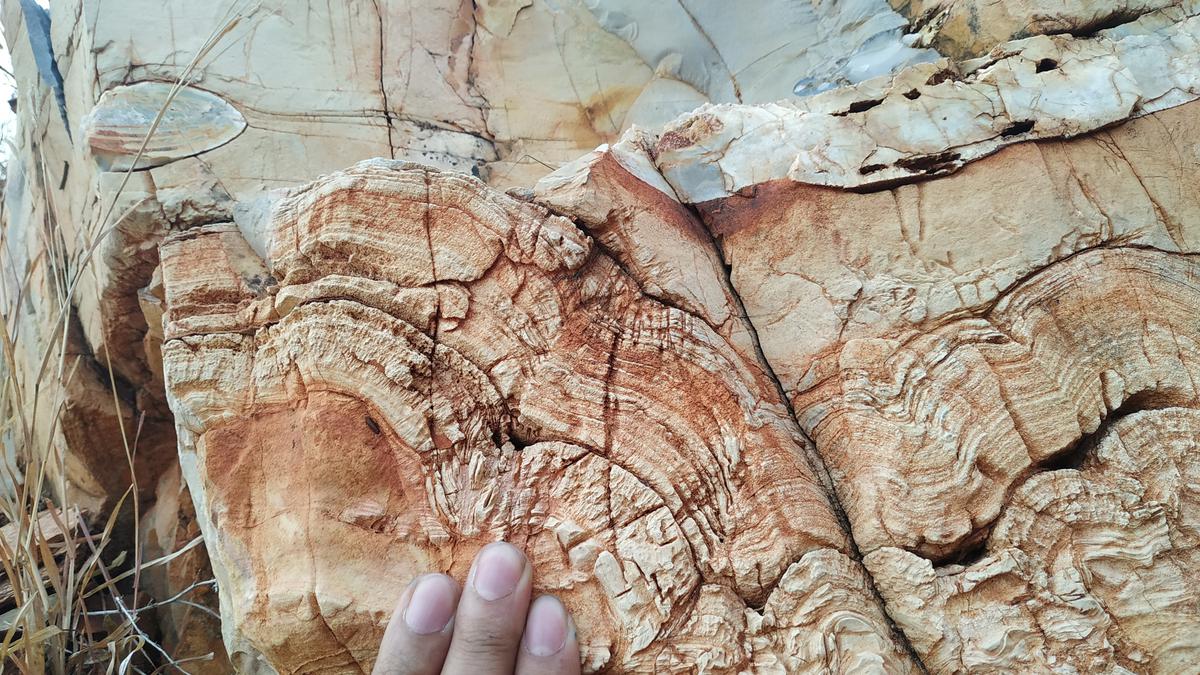
Why It Matters | Andhra rock questions conditions for life 2M years ago Premium
The Hindu
Scientists have found that a sea existing two million years ago had the right conditions for algae. It showed presence of light water instead of only heavy water
What are the facts: Two million years ago, a shallow inland sea could have had the right conditions for photosynthetic algae, dolomite deposits from Andhra Pradesh‘s Vempalli, in Cuddapah district, show. Published in Chemical Geology, the study has estimated the temperature and the composition of the sea that most likely would have existed two million years ago, in the Palaeoproterozoic era, when the earth’s atmosphere was being oxygenated. The temperature of the sea would have been around 20° C, according to estimates by the researchers, which is ideal for photosynthetic algae. The study also found that the sea contained light water, instead of the heavy water that was previously thought to have existed during this time.
Also Read | Why the Indian subcontinent is a geological museum like no other
Also Read | Citizens join hands to preserve the geological marvel of Erra Matti Dibbalu in Visakhapatnam
Also Read | Understanding our quirky geology
Also Read | The stories rocks tell

The Leela Palace Chennai presents the seven edition of Shefs at The Leela in collaboration with ‘Dean With Us’ — the mother-daughter duo of Rupali and Akansha Dean. The event honours the transformative role of Indian women chefs who are shaping the future of gastronomy. After past editions hosted across Bengaluru, Gurugram, Chennai, and Jaipur, the seventh edition in Chennai will bring together four women chefs — Sambhavi Joshi, Taiyaba Ali, Sehaj Ghuman and Bunuma Patagiri, who will bring their years of expertise into curating a menu that speaks both of their work and India’s diverse culinary heritage.





















 Run 3 Space | Play Space Running Game
Run 3 Space | Play Space Running Game Traffic Jam 3D | Online Racing Game
Traffic Jam 3D | Online Racing Game Duck Hunt | Play Old Classic Game
Duck Hunt | Play Old Classic Game










